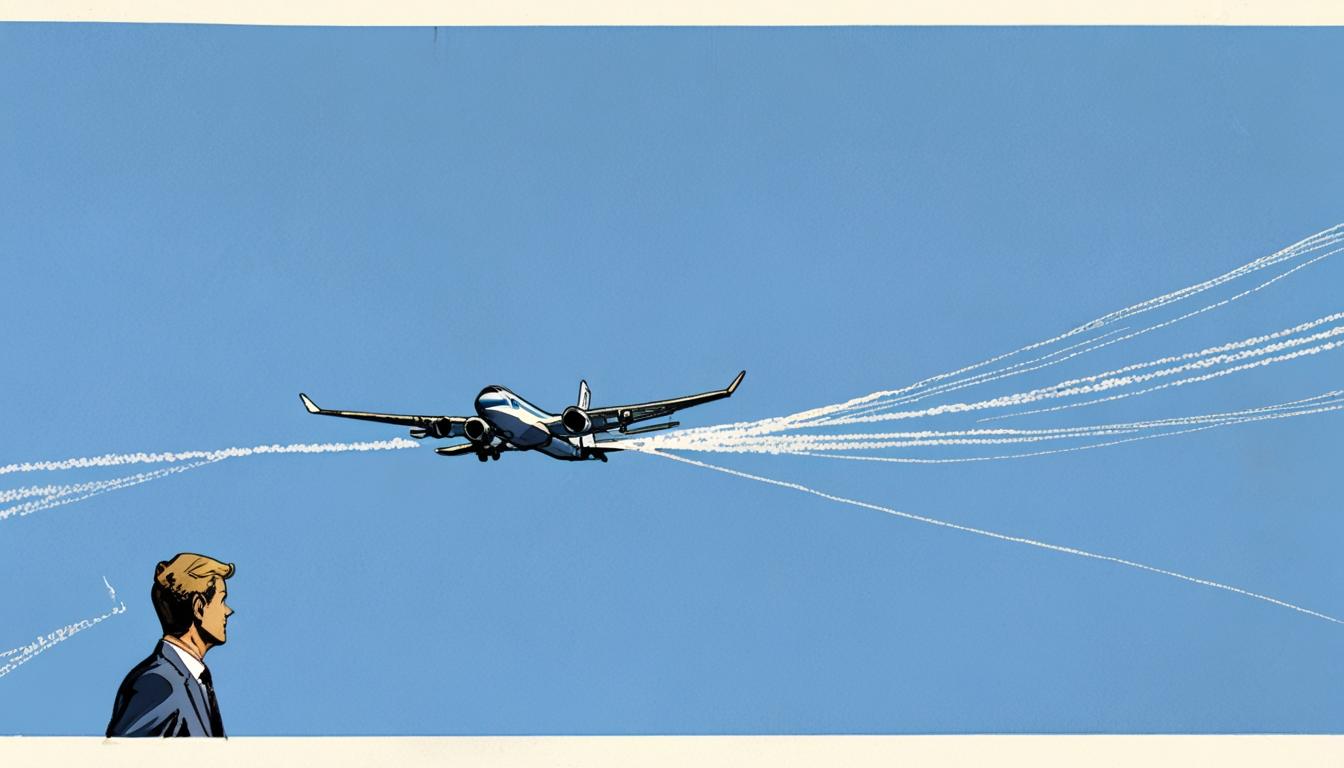The recent statements from Robert F. Kennedy Jr., the United States Secretary of Health and Human Services, have reignited the controversial discussion surrounding the "chemtrail" conspiracy theory. Historically seen as a fringe belief, the theory posits that governments are deliberately spraying harmful substances from aircraft to execute a clandestine agenda, potentially involving public health manipulation and climatic control.
Kennedy, who has long advocated for stringent environmental policies, recently categorised these alleged activities as a "crime against humanity." During a recent interview on Dr Phil's show, he expressed his commitment to addressing the issue. "Those materials are put in jet fuel," he claimed, asserting his intention to "do everything in my power to stop it" and to "find out who's doing it and hold them accountable." He further suggested that these activities might not originate from his agency, the HHS, but rather from the Defence Advanced Research Projects Agency (DARPA), which is known for its high-risk research in defence technologies.
His remarks come amid growing public concern over environmental interventions aimed at combatting climate change. Notably, the UK government has proposed geoengineering initiatives that include techniques such as stratospheric aerosol injections. This methodology aims to reflect sunlight away from the Earth to mimic the cooling effects of a volcanic eruption. The recently established Advanced Research and Invention Agency (ARIA) in the UK has earmarked over $66 million for projects exploring these geoengineering options, which adds significant weight to the fears expressed by Kennedy and others about potential atmospheric manipulation.
Kennedy has shared his views extensively through social media, asserting that current practices threaten both human health and the environment. In a post on X, he vowed to "end this crime against humanity and our planet" while calling out what he describes as a "mass uncontrolled experiment," referring to the aerosol injection methods being discussed.
While Kennedy's claims have found some resonance among conspiracy theorists, the majority of scientific bodies and experts categorically reject the notion of chemtrails. According to a study conducted in 2016, 98.7% of surveyed atmospheric scientists found no evidence to support the existence of a large-scale atmospheric spraying programme. Contrails, the visible trails left by aircraft, are generally understood to be formed from water vapour and soot particulates, which freeze into ice crystals under specific atmospheric conditions.
The persistence of the chemtrail theory has also garnered attention from private ventures. Start-ups such as Make Sunsets have experimented with releasing aerosols into the stratosphere to mitigate warming effects, an initiative supported by notable figures in Silicon Valley. This ongoing financial backing from influential tech leaders highlights the complex interplay between scientific innovation and public perception, particularly as related to environmental technologies.
As this debate unfolds, the distinctions between legitimate scientific inquiry and conspiratorial thinking continue to blur, leaving space for further dialogue and exploration of geoengineering's potential implications for society and the environment.
Source: Noah Wire Services
